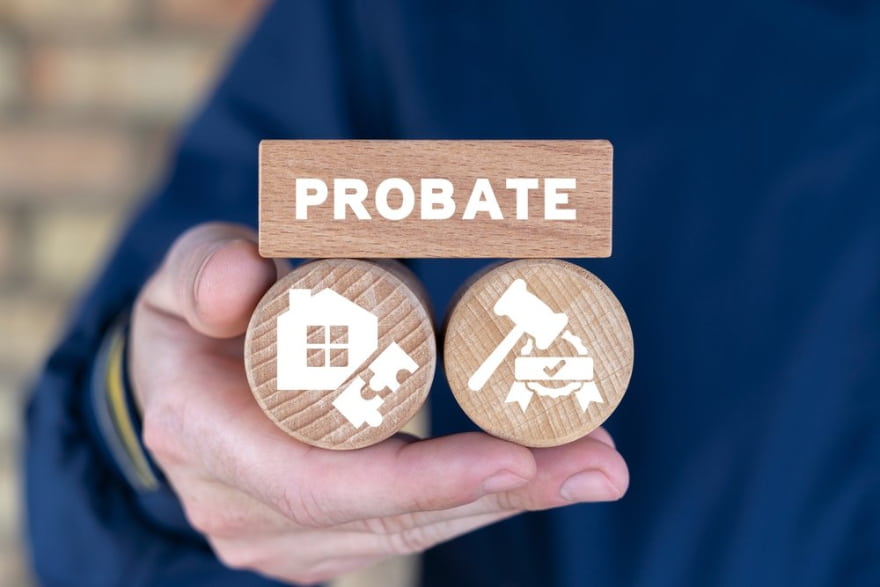One of the most common questions that arises after losing a loved one is, “When do you need to probate a will in Texas?” It’s a valid concern, and the answer depends on several factors: the types of assets involved, how ownership was structured, and the language used in the will itself. In many cases, family members feel stuck—unsure of their next step, especially when real estate, personal property, or bank accounts are part of the estate. Probate isn’t always required in Texas, but when it is, taking the correct legal steps becomes critical.
This guide will walk you through the most common situations where probate becomes necessary in Texas. We’ll focus on how to manage property, deal with bank accounts, and understand court deadlines. Using real-life examples and plain language, this article provides the clarity needed to move forward confidently during a difficult time.

Understanding the Basics: What Is Probate?
Before diving into when probate becomes necessary, it helps to understand what probate actually means. Probate is the legal process that gives a court the authority to formally recognize a person’s death and assign someone to settle their affairs. That individual—usually named in the will—is known as the executor. If the will doesn’t name anyone, the court appoints an administrator instead.
That person manages the estate. Their responsibilities include settling debts, protecting assets, and ensuring that the property is distributed according to the will or Texas law.
Is Probate Always Required in Texas?
No, not always. Texas offers alternatives for smaller estates or those with well-planned beneficiary designations. However, when certain assets are left behind—like a house owned solely by the deceased or bank accounts without a payable-on-death (POD) designation—probate often becomes unavoidable. If the property cannot be transferred without court involvement, then probate must be initiated.
When Do You Need to Probate a Will in Texas?
So, when exactly does probate come into play? You’ll generally need to file for probate if the estate includes assets held only in the decedent’s name, without any built-in transfer mechanism. Below are some typical examples of when that happens.
Scenario 1: Sole Ownership of Real Estate
This is one of the most common triggers for probate in Texas. Suppose your uncle owned a home in Dallas, and his name was the only one on the deed. There’s no joint owner, no spouse listed, and no transfer-on-death deed. That house can’t be sold or refinanced until someone is legally appointed to act on behalf of the estate. Probate is the process that gives a person that legal authority.
Scenario 2: Bank Accounts Without Beneficiaries
Let’s say a loved one passes away and leaves behind a checking account with no listed POD beneficiary. Even if the will states you’re entitled to those funds, the bank won’t release the money without proper legal authorization. In this case, that means a probate court must get involved and grant access through letters testamentary or administration.

Scenario 3: Personal Property with High Value
Maybe your relative had a collection of rare coins, valuable antiques, or vintage cars. If there’s no co-owner or automatic transfer method, probate may be required to legally pass those items to heirs.
Real-Life Example: Skipping Probate Can Backfire
Sarah from Fort Worth offers a cautionary tale. Her mother passed away, naming Sarah as the only heir in a legally valid will. Her mother’s home was fully paid off and titled solely in her name. Sarah thought she could move in and take over the taxes. But when she tried to sell the home a year later, the title company halted the deal. They required probate documentation because the title still legally belonged to her mother.
Understanding Probate Deadlines in Texas
Texas offers a reasonable window for filing a will—but time still matters. By law, you must file a will for probate within four years from the date of death. If you miss the deadline, serious complications can arise.
What Happens If You Miss the Deadline?
Sometimes, a court will accept a will filed after four years—but only if you prove that the delay wasn’t due to negligence or lack of action. That’s why you need legal help early if you’re asking, “When do you need to probate a will in Texas?” Don’t wait too long. Missing the deadline could result in the estate being treated as if the person died without a will.
When Probate May Not Be Needed
Here’s the good news. You may not need full probate under certain conditions. Texas law provides a few simplified alternatives.
TOD and POD Assets
Some assets allow direct transfer without probate. These include retirement accounts, life insurance, and regular bank accounts with a transfer-on-death or payable-on-death designation. As long as there’s a named beneficiary, the financial institution will release the funds when shown a death certificate.
Small Estate Affidavit
If the estate’s total value is under $75,000—excluding the homestead and certain exempt items—you might qualify for a Small Estate Affidavit. This process doesn’t involve full probate. But it only works if there’s no real property other than the homestead, and all heirs agree on how to divide the estate.
Muniment of Title
Texas offers a unique shortcut: the Muniment of Title process. If the deceased left a valid will and had no outstanding debts (except a mortgage), the court may approve the will simply to transfer title to real estate. This option skips full probate and is often faster and less expensive.
What Happens to Bank Accounts Without Probate?
Many people wonder what happens to bank accounts if they avoid probate. Here’s the deal: if the account doesn’t have a POD beneficiary or joint owner, the bank will freeze the funds. They won’t release the money until someone provides legal authority granted through probate.
What If You’re a Surviving Spouse?
Spouses don’t automatically gain access to bank accounts unless they were joint owners or listed as POD beneficiaries. Texas law recognizes community property, but banks still require court documents before releasing funds in accounts titled solely in the deceased’s name.
What If There’s No Will?
When someone dies without a will, they die intestate. Texas laws then decide who inherits the estate. This situation often makes things more complicated. You’ll still likely need to go through probate—but now you’ll follow the rules set by Texas intestacy statutes.
Determination of Heirship
Without a will, the court will often require a Determination of Heirship. This formal process identifies the legal heirs. You’ll need to provide documents, witnesses, and potentially attend court hearings. It takes time, money, and precision—especially if no clear family tree exists.

Why Title Companies Require Probate
Even when you think you can avoid probate, real estate usually requires it. That’s because title companies must ensure clean ownership before processing sales or refinances. A will alone isn’t enough unless it’s been formally probated.
Example: The Delayed Sale in Houston
Emily’s story highlights this issue. Her father left behind a rental property and a handwritten will naming Emily as executor. She thought she could sell the property right away. But every title company she contacted rejected the deal until she probated the will. What should’ve been a quick transaction turned into a 12-month delay.
Why Working With a Probate Attorney Makes a Difference
If you’re wondering whether you need to probate a will in Texas, the answer often lies in the details. An attorney can evaluate the estate, identify shortcuts, and help you avoid critical mistakes.
Avoiding Costly Errors
Probate paperwork is technical. One mistake—like listing the wrong heirs or forgetting to file an inventory—can delay your case or cause it to be dismissed. An experienced probate lawyer ensures every step is completed correctly, which keeps the process moving and reduces stress.
How to Start the Probate Process in Texas
If you’ve determined that probate is necessary, the next step is filing an application in the appropriate Texas probate court. You’ll need to include the original will, death certificate, and detailed information about the estate’s assets.
Steps to Expect:
- File an application with the probate court.
- Wait for the required posting period (usually 10 days).
- Attend a hearing to admit the will to probate.
- Receive letters testamentary (if appointed executor).
- Begin collecting, valuing, and distributing assets.

Final Thoughts: When Do You Need to Probate a Will in Texas?
If you’re wondering when you need to probate a will in Texas, the key factor is whether the deceased owned assets solely in their name without a beneficiary or transfer-on-death designation. In such cases, probate is usually required to legally transfer ownership of real estate, bank accounts, vehicles, and personal property. While Texas offers alternatives like Muniment of Title and Small Estate Affidavits, these options only apply under specific conditions and may not cover all situations.
To avoid unnecessary delays or legal complications, it’s best to consult a probate attorney early on. They can help you determine if probate is necessary and guide you through the steps. Even though probate can seem complex, tackling it the right way protects your family’s interests and ensures a smoother transition of assets during a difficult time.







